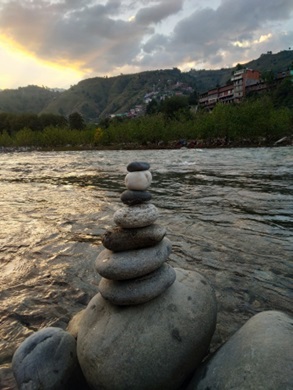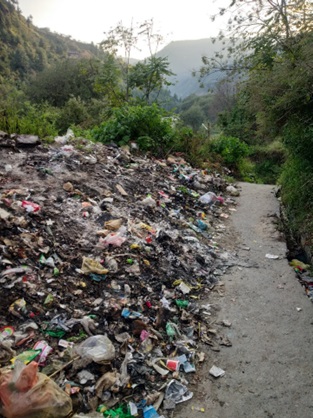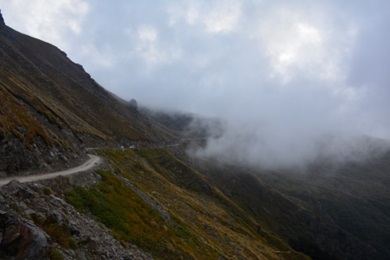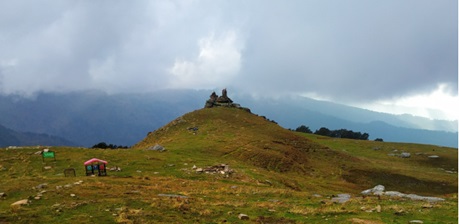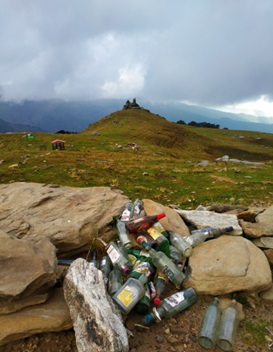
Chanshal Pass – A Tranquil Mountain Retreat?
Nestled at the top of a mountain in Himachal Pradesh lies the abandoned mighty Chanshal Pass, about 150 km up and away from Shimla, the British summer capital of India. Chanshal Pass lies at the junction of two hilly states of Himachal and Uttarakhand.
It is open from May to October and is located at an elevation of 4,520 meters. The highest peak in Shimla district offers an enthralling view of the valley below. Even the drive to the Chanshal top is scenic, and a visit here is highly recommended for anyone interested in travel, off-roading, or photography.
We planned a four-day trip to the sight. The first two days were kept for exploring and the last two days to return home at a leisurely pace. The day we started our trip, we drove continuously for 14 hours to reach Rohru, a small town just 50 km before Chanshal Pass, along the river Pabbar. As we crossed a bridge across the river, we could see the wild stream gushing through the rocks, paving its way. The golden rays of the sun reflected upon the water.
Regrettably, the walkway to the bridge was littered with trash, which dampened our spirits. How could we be so irresponsible as to leave trash in the middle of town, right next to the river bridge?
The second day was dedicated to exploring the sight. Though it was hardly a few km away, the road was non-existent. It being the apple season, a lot of pick-up trucks used that dusty road. Since it had rained a couple of weeks ago, the already damaged road had turned into a muddy, slushed, unpaved road. The deep tyre marks of heavy vehicles were clearly visible.
As we reached the top of the Chanshal Pass, we were welcomed by chilly wind and a light drizzle. The view was breath-taking, and we could see a tiny temple in the backdrop.
Amid this spectacular natural scenery, I noticed that a lot of trash was scattered at such a pristine location. Empty alcohol bottles, paper plates, plastic food packaging, and empty wrappers of chips had marred the otherwise spectacular scenery. Despite the presence of garbage bins, trash was strewn all around.
“Leave only footprints, take only memories” is the basic mantra for travelling to remote, unexplored destinations. Still, most of the time, we leave only trash and take only photos, failing to enjoy and absorb the abundant natural beauty all around us. Moreover, the place is so remote and windy that even garbage collection trucks cannot come daily.
Due to high-velocity winds, garbage flows to inaccessible areas of gorges and rivers, making collection difficult. It was mostly food packaging waste that was haphazardly scattered everywhere. Despite numerous public awareness campaigns and disposal methods, this issue has persisted for several years and has become an uncontrollable nuisance.
Evirocor’s Oko Products
Evirocor’s Oko products would be a blessing for travelers like me who want to preserve remote corners of India as they were centuries ago. Their bio-degradable products are used for food packaging and e-commerce sustainable packaging. They are not only earth-friendly and plastic free; they are aesthetically appealing too. Oko products are non-polluting, odor free, have no wax lining, safe to use, have a low carbon footprint, and are derived from renewable raw materials.
Oko green packaging do not pollute the environment. Instead, they slowly start to mingle with the earth. Within a short span of time, they are entirely absorbed by the soil, maintaining such remote locations litter free and natural.

